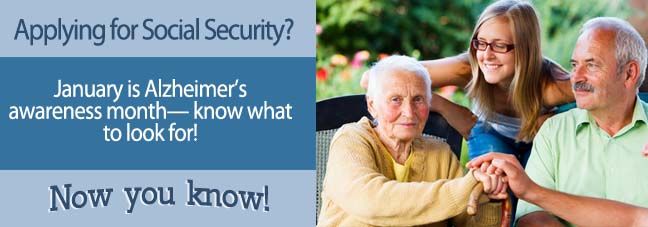Every 66 seconds, someone in the United States develops Alzheimer’s. Over 5 million Americans are living with this disease, which is currently the 6th leading cause of death in America. And yet, despite these statistics and continuing research, Alzheimer’s does not yet have a cure.
January is Alzheimer’s awareness month. In honor of those affected by this illness, it is important to understand why this illness is so devastating, how to detect warning signs, how to cope, and how to seek further help.
What is Alzheimer’s?
Alzheimer’s is a progressive brain disorder that affects memory and thinking skills. This is caused by the clumping of small fibers in the brain, called tangles, that prevent neurons from sending messages to the body.
This makes it hard to store new memories, focus on tasks, and eventually perform simple daily tasks.
While the root of Alzheimer’s is known, scientists are still unaware of how this process begins and how it exactly works. This makes finding a cure more difficult than with other diseases. The main factor that is known to contribute to Alzheimer’s is age — in fact, of the 5.4 million Americans currently living with disease, around 5.2 million are over the age of 65.
However, a whopping 90% of what is currently known about Alzheimer’s has been discovered in the last 15 years, so scientists are hoping to learn more as research continues.
Warning Signs and Prevention
Like mentioned above, one of the common threads between the majority of Alzheimer’s patients is age. As you get older, it is important to schedule regular visits with your primary care doctor and neurologist to check for warning signs. Alzheimer’s is also more common in those with a family history of the disorder, as well as those with “risk genes” and “deterministic genes”.
These are specific genes that have been found to put people at higher risk for developing the disease, and can be tested for at any point.
However, for people of any age experiencing unnatural trouble retaining memories or focusing on daily activities, it is important to see a doctor — these are the most common warning signs of Alzheimer’s and should be identified as early as possible.
While Alzheimer’s currently has no cure, scientists have found a few things that may delay it’s onset. These include maintaining a healthy weight,avoiding smoking, and getting regular exercise, which are recommended to prevent most diseases and disorders.
Coping with Alzheimer’s
For those living with Alzheimer’s, it is vital to develop healthy coping strategies to learn to live with the disease. Alzheimer’s does not have to prevent life as you know it and can be fought like any other illness. Some helpful tips include:
- Identifying new challenges and setting realistic goals
- Reducing stress by simplifying your lifestyle
- Relying on friends, family, and loved ones for support
- Avoiding triggers that make you feel worse
- Joining support groups and getting help from non-profits
- Staying as healthy and positive as possible
Additional Resources
If you or a loved one has been diagnosed with Alzheimer’s and is looking for additional assistance, Social Security disability insurance (SSDI) may be an option. Social Security can provide monthly benefits to patients and families who are unable make ends meet due to their impairment.
For more information on SSDI or the application process, you can refer to the Social Security Administration’s website or speak with a Social Security disability attorney.
This January, educate friends and family about Alzheimer’s and participate however you can to help create an Alzheimer’s-free future.
